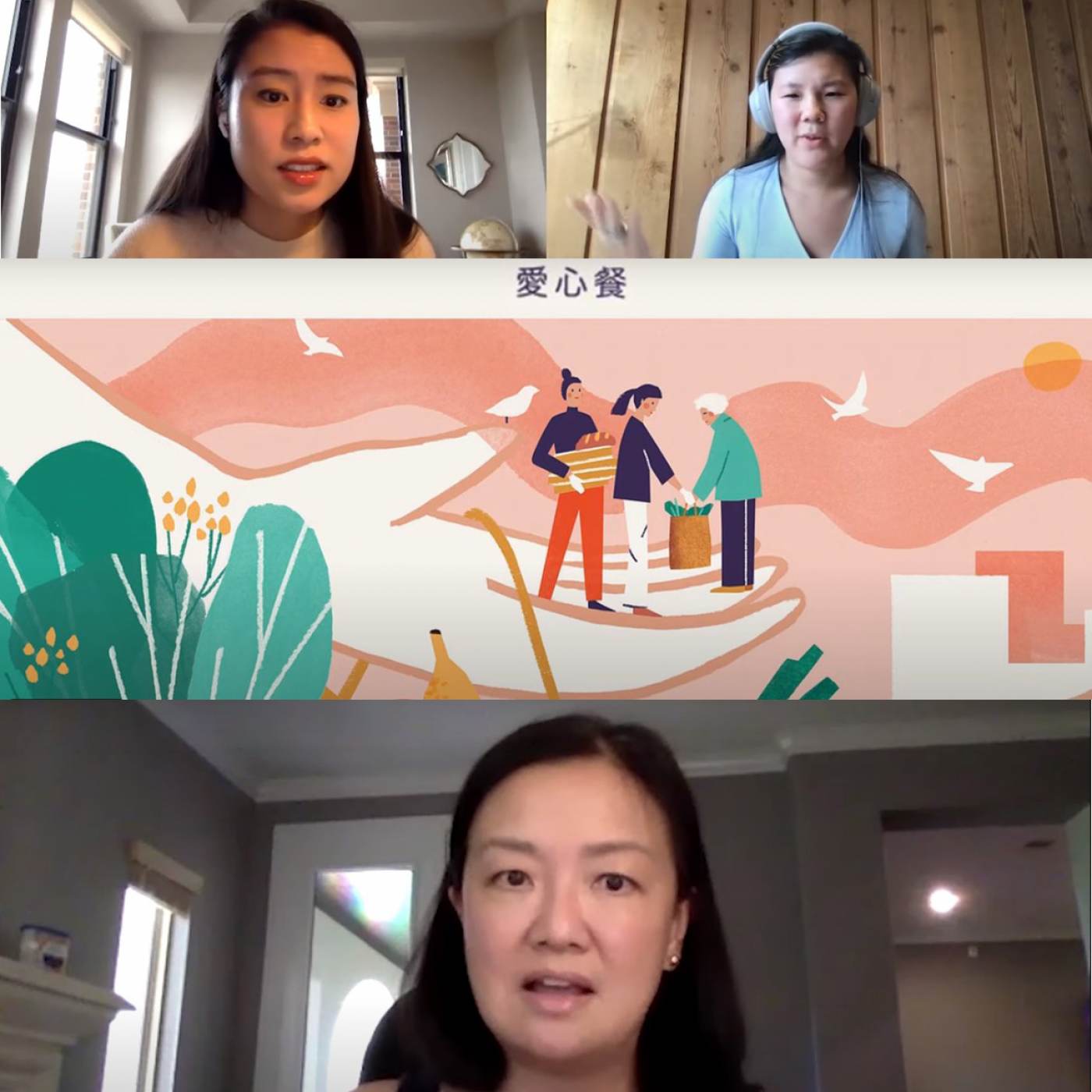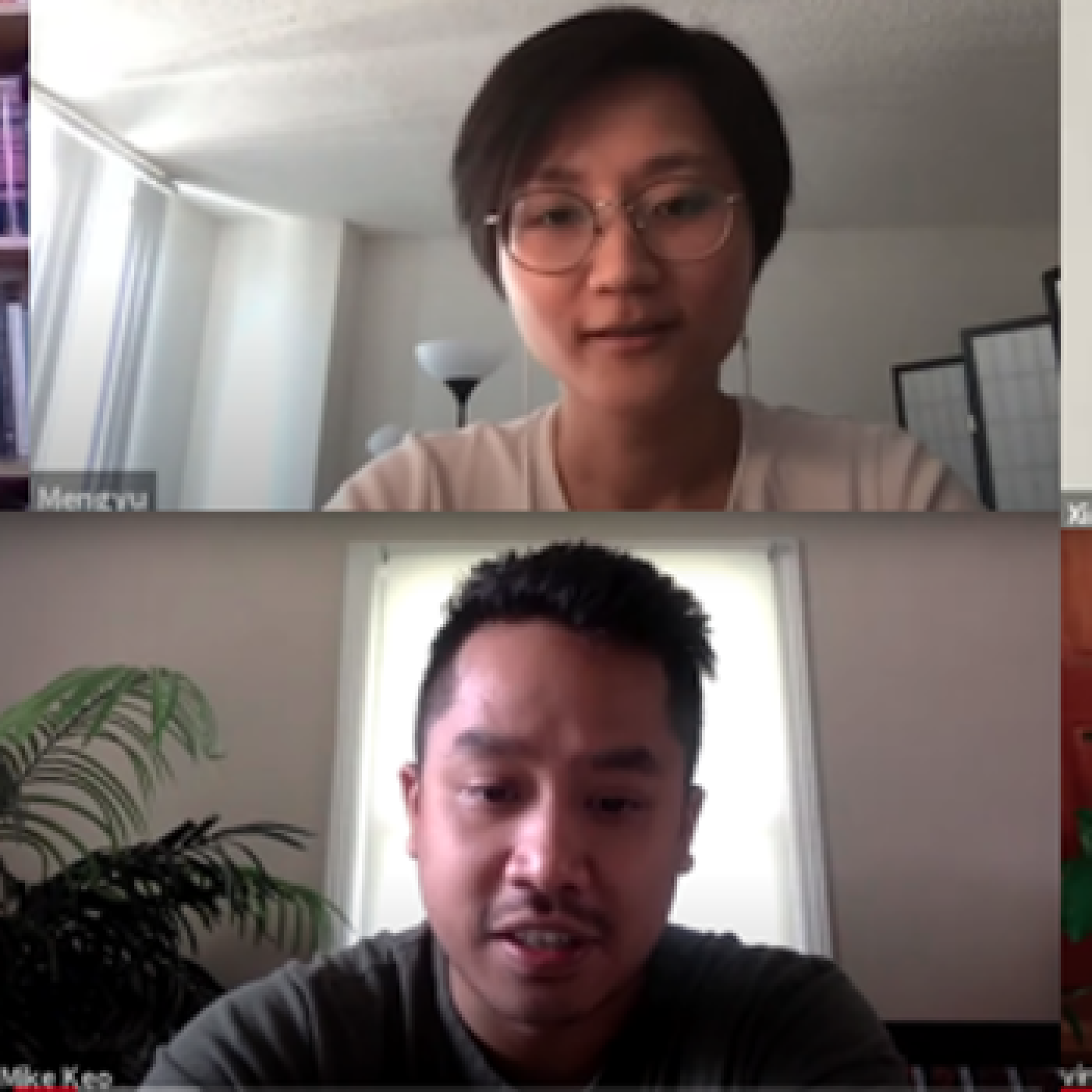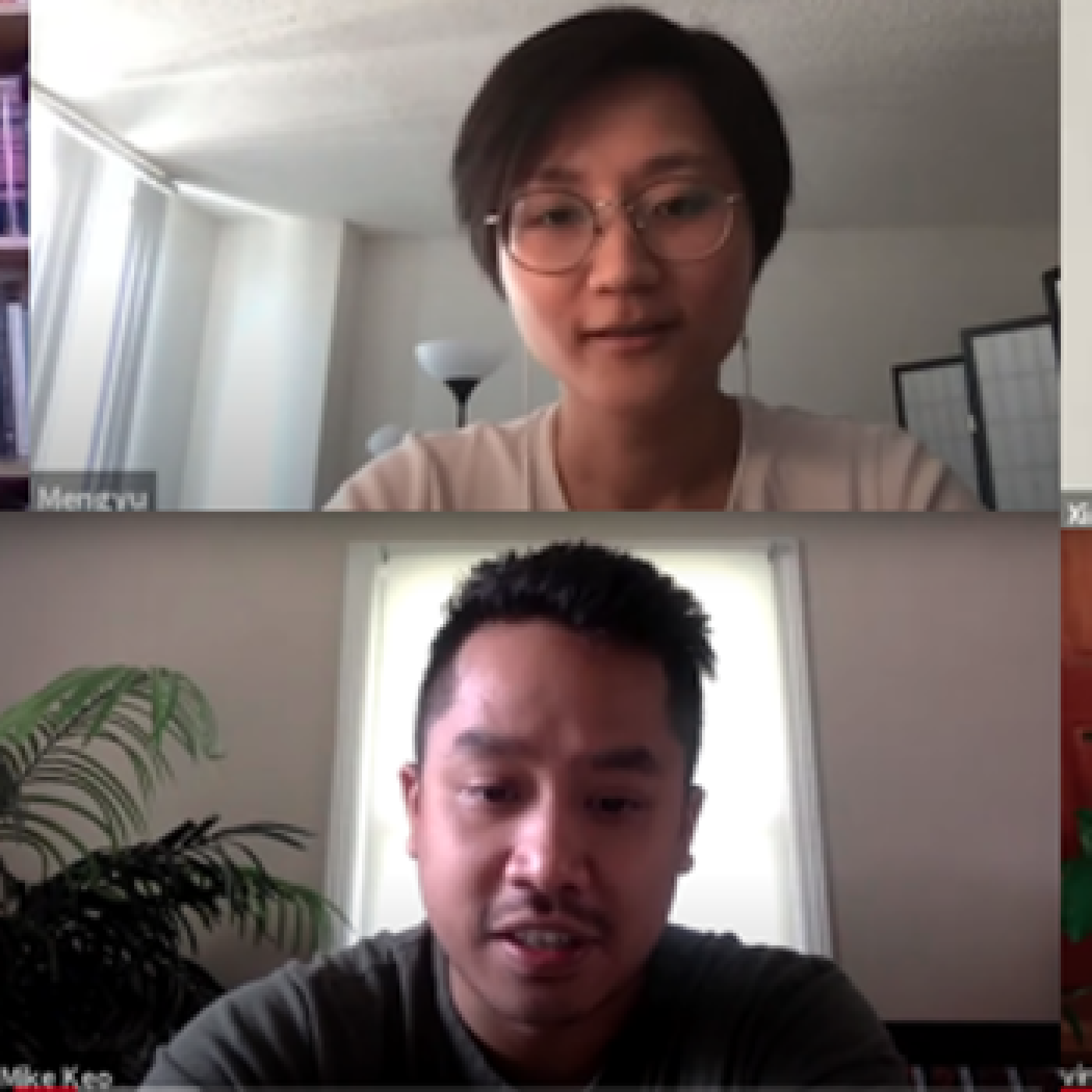OneWorld COVID-19 Oral Histories Phase III was supported by the Princeton RISE Program. Interviews were researched, coordinated and conducted by Princeton PHD fellows Merlin Boone, Jeffrey Liao, Michael W. Zhang and MOCA volunteer Megan Hobson in Summer 2021.
OneWorld COVID-19 Oral Histories-Phase III
Sarah Lee
A Chinese-Malaysian journalist and director of marketing communications at Kalamazoo Community Foundations, Sarah Lee reflects upon her article “Why do I cook?”, an intimate examination of the connection between food and identity. She connects the methodical process of cooking to the more personal and vulnerable lens of her heritage, as food becomes a way of expressing community, care, and love between her and her family. Lee also discusses her 31 Stories for AAPI Month project, in which her words become a vessel for remembrance of the cultural roots that were slowly displaced after she immigrated to the United States. Amidst her personal recollections, Lee connects her own individual experiences with the increased violence against AAPI individuals during the pandemic. She reflects upon the cultural scapegoating of Asian-Americans, the sudden hypervisibility she felt due to COVID, and the media’s obsession with tragedy as a form of public consumption. While such large acts of violence and bigotry at times made her feel helpless, Lee also talks about her involvement in an Asian affinity group in her local community as a form of self-care and communal uplifting. Throughout, Lee’s passions–cooking, writing, her involvement in her community–shine through as powerful channels of self-expression, racial empowerment, and healing in a time characterized by hatred and uncertainty.
Dr. Ee Tay
EE Tay, a pediatric ER physician residing in New York City, discusses her community involvement in assisting marginalized populations during COVID-19. She reflects upon a project where she started a donation of hundreds of tablets to hospitals for sick patients to communicate with their loved ones through FaceTime. Further, she discusses her work scheduling over a thousand vaccination appointments for elderly individuals and how these experiences opened her eyes to the vulnerabilities facing marginalized communities during this health crisis. In addition to her community involvement during the pandemic, Dr. Tay talks about her identity as an Asian-American woman in medicine, her personal experiences navigating the hypervisibility of AAPI individuals during Covid, and the struggle between the desire to help others yet also internalize the daily traumas of being a doctor during the pandemic.
Michael Sheng
Michael Sheng, an artist and educator based in New York City, discusses his painting series “The Melting Pot is Boiling,” which seeks to visualize and humanize Asian-Americans during a COVID-era racism and violence. Sheng connects his personal roots with his work as an artist, bridging the political identity of being an immigrant with the artistic lens of his canvas. He shares insight on the cultural displacement of moving to New York as a child, the refuge of self-expression he found in art, and the experimentation he employs in his multimedia work. Sheng also discusses the inspiration as well as the somber lessons he took from his father, a well-respected Chinese artist who sacrificed his passion for art to make ends meet after they immigrated to the United States. Sheng introspects on the difficulties faced by the AAPI community during the pandemic and concludes by stating that creative outlets such as art and writing–especially for the younger generations–are key to showcase and vocalize pride in one’s identity and speak out against racial injustice.
Rob Chen
Rob Chen, a New York based performer with experience in theatre, film, and music, discusses his spoken word rendition of his song “Carry On,” which he performs under his pseudonym Blu Hyku. In the song, Chen calls for strength and community in a time marred by social paranoia, alienation, and spikes in hate crimes against Asian-Americans. He also speaks to his experiences growing up as a Cantonese-American in Brooklyn, the desire to use his voice and express his identity through public performance, and his realization of his own insecurities that he had to navigate and confront throughout the pandemic. In this oral history, Chen bridges the personal recollections of his childhood and his passion for self-expression through song and theatre with the broader themes of his activism and consciousness of wider societal issues. He concludes by stating that the core message of his song is to hold onto faith and remain resilient through the hardships of the past year, and to not lose sight of our humanity in the wake of public violence and unrest.
Clara and Cynthia
In San Francisco’s Chinatown, Clara Hsu and Cynthia Yee are channeling their passion for the arts to support the community during the COVID-19 pandemic. As the President of the Clarion Music Centre, Clara teaches music, acting and Chinese poetry while producing plays, directing comedy skits and pursuing her own love for writing. Through her involvement in Chinatown she met Cynthia, a seasoned performer who has travelled the globe and is also the founder of the Grant Avenue Follies, a senior dance troupe raising money for senior homes. In the interview, Clara and Cynthia discuss finding their passion for poetry and performance and the impact of the pandemic on the Chinatown arts community. Further, they talk about the inspiration and creation process behind their rap called “Gai Mou Sou”, written by Clara and performed by the Grant Avenue Follies. As a response to the growing anti Asian violence, especially towards senior citizens during the pandemic, the rap incorporates sayings and phrases scolding attackers and warning them with feather dusters. In the interview, Clara and Cynthia also share their hope that the piece will contribute to stopping violence and empower the community. They add that entertainment plays an important role bringing joy to people’s lives and the community together.
Eric Lee
Capturing daily life during the COVID-19 pandemic, Asian American Photojournalist Eric Lee roamed the streets of Washington D.C and New York recording his experience through street photography. Selected shots from the project have been put together for his photo series “a distanced memory” which explores his feelings of despair, isolation, loneliness and hope. In this interview, he discusses graduating from Corcoran College of the Arts and Design during the pandemic and his thesis exploring Asian identity and boyhood. On his own journey to understand Asian American identity, Eric Lee talks about the role of photography in his personal life, finding his voice documenting the world as an asian photographer and his passion to bring the experience of Asian American people to light. Attending events such as the reopening rally in Virginia in the midst of rising anti-asian hate crimes, he goes on to talk about his growing fears and anxiety for his safety and his family’s welfare. As the racism and attacks during the pandemic added another layer to the challenges faced by the AAPI community, Eric Lee discusses how he is finding his voice during the COVID-19 pandemic and his hopes for the future generations as they explore their identity.
Taylor Zhou
Following the shooting of eight women in Atlanta at the start of the COVID-19 pandemic, Taylor Zhou published an opinion article “The Asian Mystique 2021” calling for change surrounding the representation of Asian women. During the interview, Ms Zhou reflects on her own journey embracing her identity and passion to support the AAPI community through her work in Manhattan’s Chinatown. Ms Zhou also delves into the messages conveyed in her article which links to Sheridan Prasso’s book, The Asian Mystique: Dragon Ladies, Geisha Girls & Our Fantasies of the Exotic Orient. Through exploring Prasso’s analysis of the fetishization of Asian women as erotic, mysterious, submissive and foreign, Ms Zhou links to the targeting of asian women during the COVID-19 pandemic. She goes on to talk about historical misrepresentations of Asian women, adding that a lack of awareness about Asian history in America has altered the way the AAPI community is perceived and treated today. Following the COVID-19 pandemic, Ms Zhou hopes that increasing awareness and working towards more balanced reporting in the media can help people in the AAPI community to more easily embrace their identity and no longer be perceived as the “perpetual foreigner.”
Dr. George Liu, CAIPA (Coalition of Asian-American Independent Practitioner Association)
Dr George Liu is the President and CEO of the Coalition of Asian American Independent Practitioners Association (CAIPA). The organization provides medical services and care to almost half a million patients in New York City and played a crucial role during the pandemic supporting the AAPI community. After moving to the United States to pursue his studies, Dr Liu discovered a passion for healthcare and started medical school. During the interview with MOCA, Dr Liu describes his early career, observing discrimination, disrespect and abuse towards patients and practitioners in New York Chinatown’s healthcare system. Through his story he explores the creation and evolution of CAIPA’s vision to assist the AAPI community’s access to healthcare in New York City. Dr Liu also outlines CAIPA’s testing and vaccination rollout during the pandemic, alongside the organization’s response to increasing attacks on the AAPI community. To conclude the interview, he shares his hopes for the AAPI community and increasing education in order to create a united and inclusive world.
Alex Tang, CAIPA (Coalition of Asian-American Independent Practitioner Association)
As the Clinical Director for the Chinese American Independent Practitioner Association (CAIPA), Alex Tang was faced with the challenge of coordinating access to healthcare during the pandemic. In the interview with MOCA, he discusses his personal experience working as a physician’s assistant in trauma and critical care and then through the COVID-19 pandemic. Navigating so many unknowns, Mr Tang began to strategise a system to deal with the pressure facing hospitals as fear and patient numbers escalated. Ensuring people had access to care, Mr Tang describes designing mobile COVID testing clinics. Despite having limited resources, Mr Tang was able to implement a fast, effective and safe way to test the community. However, he discusses how the pandemic brought to the fore barriers facing the AAPI community, including access to healthcare information. Mr Tang expands on how language and communication platforms are essential to outreach. He hopes that from the pandemic the healthcare sector will continue to improve the accessibility and outreach strategies for all vulnerable people, including in the AAPI community.


